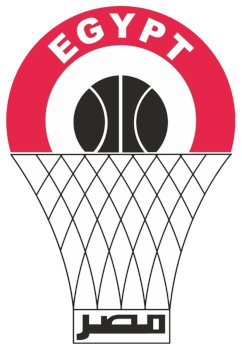
EuroBasket, also commonly referred to as the European Basketball Championship, is the main international basketball competition that is contested quadrennially, by the senior men's national teams that are governed by FIBA Europe, which is the European zone within the International Basketball Federation.

The Yugoslavia men's national basketball team represented the Socialist Federal Republic of Yugoslavia from 1943 until 1992 in international basketball, and was controlled by the Basketball Federation of Yugoslavia.

Alexander Yakovlevich Gomelsky was a Russian professional basketball player and coach. The Father of Soviet and Russian basketball, he was inducted into the Naismith Memorial Basketball Hall of Fame in 1995 and the FIBA Hall of Fame in 2007.

The Latvia men's national basketball team represents Latvia in international basketball. They are organized and run by the Latvian Basketball Association. Latvia has reached the European Basketball Championship 15 times, with their ultimate success occurring during the inter-war period, when they became the first team to win the tournament in 1935. Four years later, they had another impressive run to come away with the silver in 1939. Although after 1939, Latvia were forced to suspend their national team operations, due to the Occupation of the Baltic states during World War II. Latvia regained independence in 1991, with their national team taking part in international competition once again a year later.

EuroBasket Women is a biennial international women's basketball competition held between the nations of FIBA Europe for women's national teams. EuroBasket Women is also used as a qualifying tournament for the FIBA Women's World Cup and also the Olympic Games.

Sergei Alexandrovich Belov was a Russian professional basketball player, most noted for playing for CSKA Moscow and the senior Soviet Union national basketball team. He is considered to be one of the best European basketball players of all time, and was given the honour of lighting the Olympic Cauldron with the Olympic flame during the 1980 Summer Olympics opening ceremony, in Moscow.

The Czechoslovakia national basketball team represented Czechoslovakia in international basketball from 1932 to 1992. After the Dissolution of Czechoslovakia in 1993, the Czech Republic and Slovakia set up their own national teams. The present-day Czech Republic national basketball team is recognized as the successor to the Czechoslovak team.

The Egyptian national basketball team is organized and run by the Egyptian Basketball Federation.
Panagiotis "Panos" Fasoulas is a Greek politician and former professional basketball player. He was selected in the second round by the Portland Trail Blazers in the 1986 NBA draft, but never decided to play in the NBA. Considered to be one of the best big men ever in European basketball, Fasoulas became a FIBA Hall of Fame player in 2016.

Sergei Valerianovich Bazarevich is a Russian former professional basketball player and coach. At 6 ft 3 in (1.91 m) and 175 lb (79 kg), he played at the point guard and shooting guard positions.
The Lithuania women's national basketball team represents Lithuania in international women's basketball competitions. They are regulated by the Lithuanian Basketball Federation, the governing body for basketball in Lithuania.

Denis Marconato is an Italian former professional basketball player. At a height of 2.11 m (6'11") tall, he played at the center position.
Giancarlo Primo was an Italian professional basketball player and coach. He was a coach of the FIBA European Selection team in 1974, 1975, and 1976. In 2001, he was awarded the FIBA Order of Merit. In 2007, he was enshrined into the FIBA Hall of Fame, and in 2008, he was inducted into the Italian Basketball Hall of Fame.
Vanya Voynova ; December 27, 1934 – March 9, 1993) was a Bulgarian basketball player. She has played for Slavia Sofia from 1950 to 1968, winning the European Champions' Cup in 1959 and 1963 and Bulgarian league 12 times from 1953 to 1965. With the Bulgaria women's national basketball team, she has won silver in the 1959 World Championship, bronze in the 1964 World Championship, gold in the 1958 European Championship, silver in the 1960 European Championship and 1964 European Championship and bronze in the 1954 European Championship and 1962 European Championship. She has been inducted into the Women's Basketball Hall of Fame in 2001 and FIBA Hall of Fame in 2007.

The Spain women's national basketball team represents Spain in international women's basketball competition, and are regulated by the Spanish Basketball Federation, the governing body for basketball in Spain. Spain has one of the most successful women's national teams in the world, being the current World Cup bronze medallists.

The Slovakia men's national basketball team represents Slovakia in international basketball competition. The supervising body is the Slovak Basketball Association (SBA).
The Czech Republic women's national basketball team represents the Czech Republic in international women's basketball. Their biggest success so far is the gold medal at the EuroBasket 2005. Czech Republic are one of the newest national basketball teams in the world, having split from the Czechoslovakia women's national basketball team after the dissolution of the unified state in 1993, with the Slovakia women's national basketball team continuing as the successor of the Czechoslovak team.
Basketballin Greece erupted with the win of the Greece men's national basketball team at the 1987 EuroBasket in Athens, which caused a general basketball euphoria in the country. Since then, the Greece men's national teams have achieved consistent international success, leading Greece to join Russia, Serbia, Croatia, Italy, Spain, France, and Lithuania in the circle of European basketball powers. In addition to the Greece national team's triumph in 1987, they won the gold medal at the 2005 EuroBasket, silver medals at the 1989 EuroBasket, and the 2006 FIBA World Cup, and the bronze medal at the 2009 EuroBasket.

The Slovakia women's national basketball team represents Slovakia in international women's basketball, and is run by the Slovak Basketball Association. Slovakia are one of the newest national basketball teams in the world, having split from Czechoslovakia after the dissolution of the unified state in 1993, with the Slovakia women's national basketball team continuing as the successor state of Czechoslovakia.
The 1997 European Women Basketball Championship, commonly called EuroBasket Women 1997, was the 26th regional championship held by FIBA Europe. The competition was held in Hungary and took place from 6 June to 15 June 1997. Lithuania won the gold medal and Slovakia the silver medal while Germany won the bronze.












